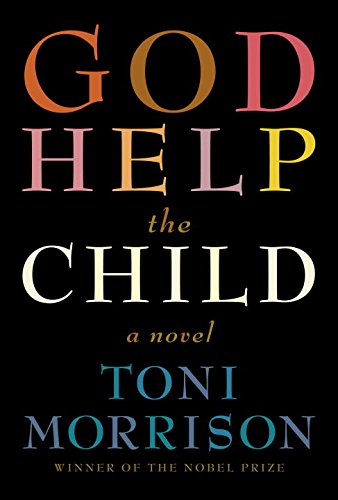 In anticipation of her new novel which is set to be released later this week, The Telegraph’s Gaby Wood interviewed “the unwavering voice of black America” – Toni Morrison – about God Help the Child.
In anticipation of her new novel which is set to be released later this week, The Telegraph’s Gaby Wood interviewed “the unwavering voice of black America” – Toni Morrison – about God Help the Child.
Morrison told Wood about her career, which includes working at Random House for 20 years, and this new novel, which has been seven years in writing. God Help the Child addresses, among other important topics, one of modern day America’s most raging issues: race. ““Race is the classification of a species. And we are the human race, period,” the great author told the interviewer. They also discussed her childhood and years at college, which gave her “a career-long project to – in her words – ‘turn the gaze’.”
This will be Morrison’s first novel to be set in the present, weaving a tale about the way the sufferings of childhood can shape, and misshape, the life of the adult. This fierce and provocative novel, written as only Nobel laureate Morrison can, shows what becomes of a daughter when her mother forgets that what you do to children matters – and they might never forget your actions.
Earlier this year The New Yorker shared an excerpt from the novel, offering the mother’s defence that what happened to her daughter, Bride, was not her fault.
Read the plea made by Sweetness, and decide for yourself:
It’s not my fault. So you can’t blame me. I didn’t do it and have no idea how it happened. It didn’t take more than an hour after they pulled her out from between my legs for me to realize something was wrong. Really wrong. She was so black she scared me. Midnight black, Sudanese black. I’m light-skinned, with good hair, what we call high yellow, and so is Lula Ann’s father. Ain’t nobody in my family anywhere near that color. Tar is the closest I can think of, yet her hair don’t go with the skin. It’s different—straight but curly, like the hair on those naked tribes in Australia. You might think she’s a throwback, but a throwback to what? You should’ve seen my grandmother; she passed for white, married a white man, and never said another word to any one of her children. Any letter she got from my mother or my aunts she sent right back, unopened. Finally they got the message of no message and let her be. Almost all mulatto types and quadroons did that back in the day—if they had the right kind of hair, that is. Can you imagine how many white folks have Negro blood hiding in their veins? Guess. Twenty per cent, I heard. My own mother, Lula Mae, could have passed easy, but she chose not to. She told me the price she paid for that decision. When she and my father went to the courthouse to get married, there were two Bibles, and they had to put their hands on the one reserved for Negroes.
Read Wood’s article about the interview with Morrison:
Toni Morrison is, without a doubt, a world-class novelist. Her work as an editor, however, has received much less attention. Morrison worked at Random House for 20 years, leaving in 1983, just before she set out to write her Pulitzer Prize-winning novel Beloved.
At her apartment in lower Manhattan, I ask her about the ways in which American literature has changed, and she volunteers that she “had something to do with that”. But she is not referring to her own fiction. “I said, I can’t march, I have small children,” she tells me. “I’m not the marching type anyway. So when I went into publishing, I thought, the best I can do is to publish the works of those who are out there – like Angela Davis, Huey Newton – and the literature. And let it be edited by someone who understands the language, and understands the culture.”
Book details
- God Help the Child by Toni Morrison
Book homepage
EAN: 9780307594174
Find this book with BOOK Finder!
